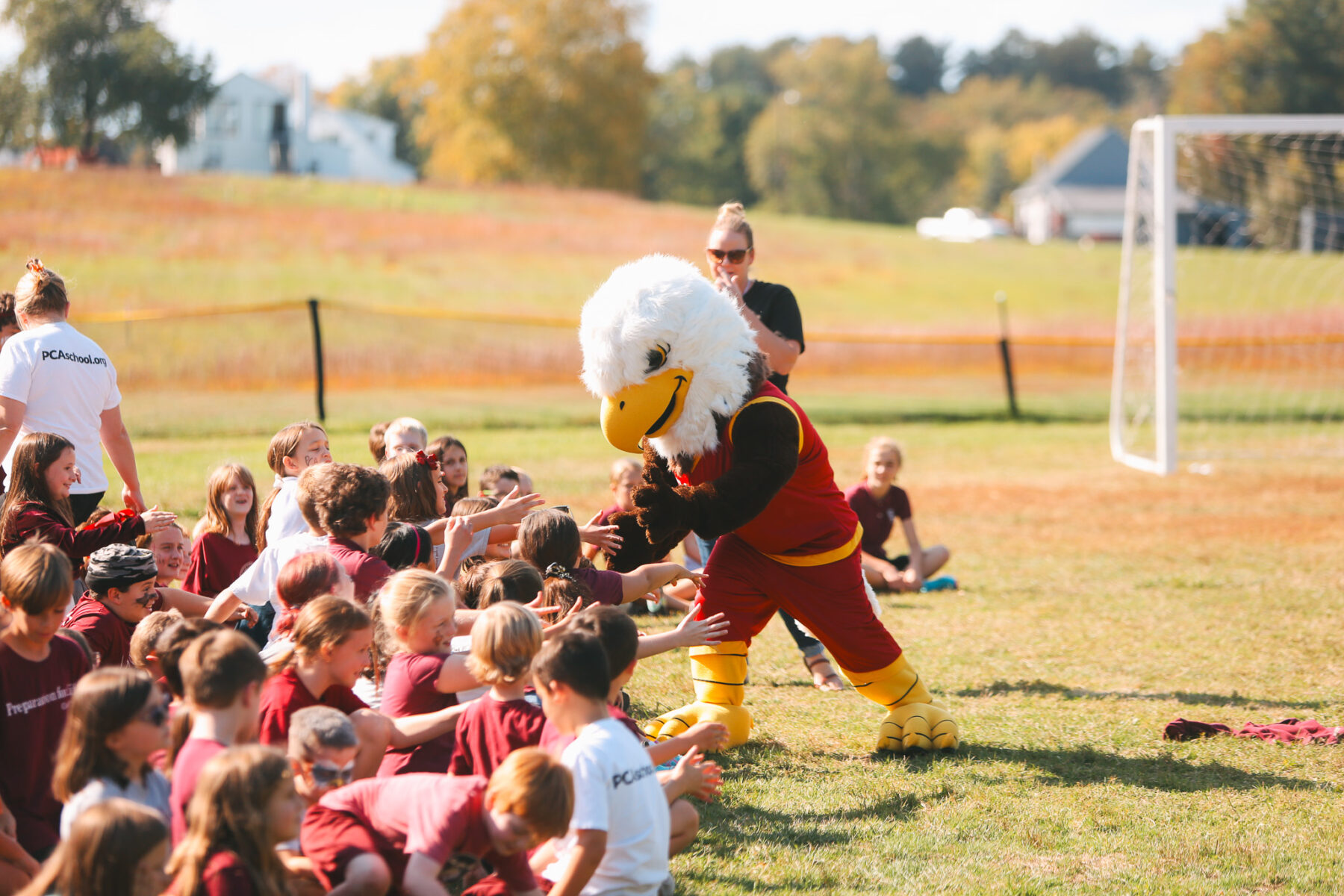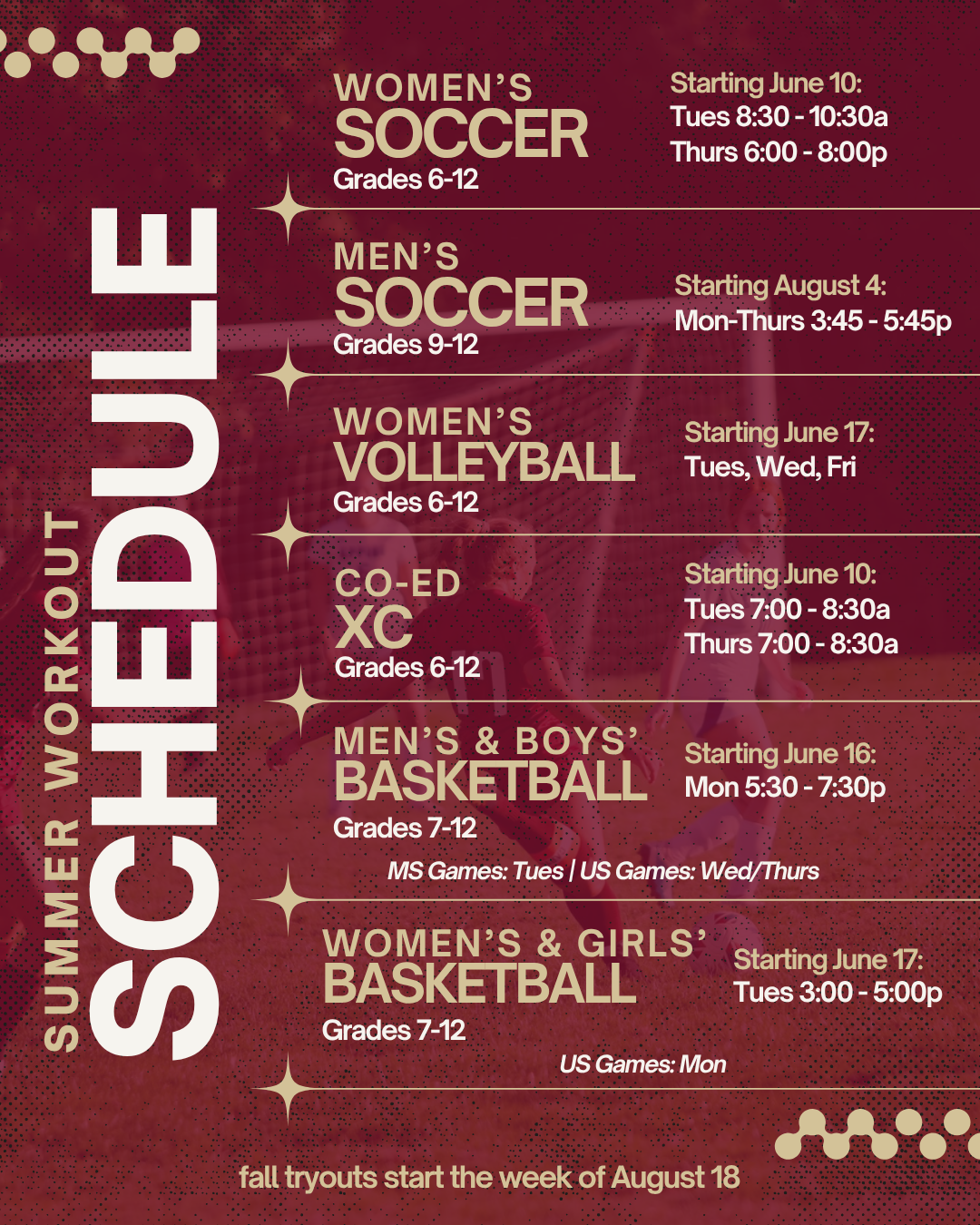Participating in the Speech Meet: “Why Do I Have To?”
Written by Dr. Connie Lawrence, Dean of Academics
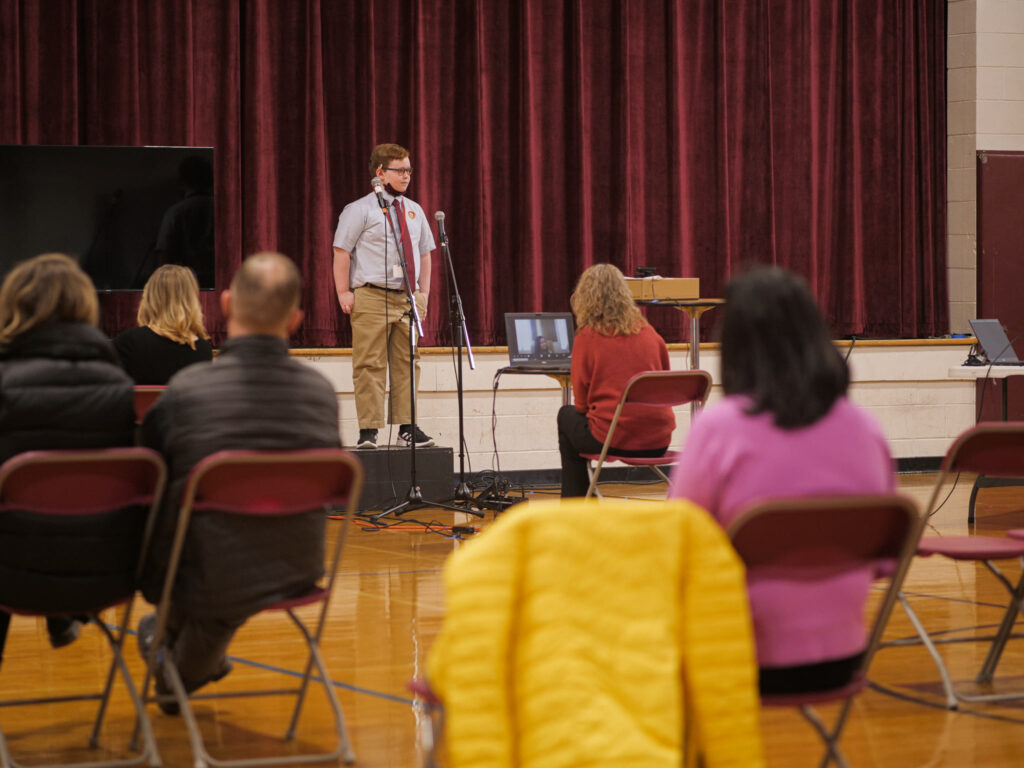
Why Do I Have to…
Participate in the Speech Meet?
Often students ask why they have to do something for school, such as memorize scripture or participate in the Speech Meet and we haven’t provided parents with the reason(s). Since, for our Lower School students, the Speech Meet takes place each year, this article explains the purpose of this event. As always, the more students put into the event; the more they get out of it.
While some may think of the word rhetoric as a passé phrase of yesteryear, it is listed as a critical skill of the 21st century. Educators and businesspeople rank the effectiveness of persuasion and communication as top skills needed for success. Unfortunately, surveys find that the fear of public speaking ranks above even the fear of death.
So how do we prepare our graduates for public speaking?
In a word, practice. PCA has a long history of encouraging rhetoric and public speaking. Annually, a Speech Meet has been held for grades K–8 and many graduates have returned to share the significance of that training, even though it may have been stressful for them to do at the time.
To explain PCA’s Speech Meet, we ask students select from materials that progress in difficulty as they grow academically.
- Short poems at the K-3 level
- Longer prose at the 3-5 level
- Persuasive essay, oral interpretation, and famous historical speeches in Middle School.
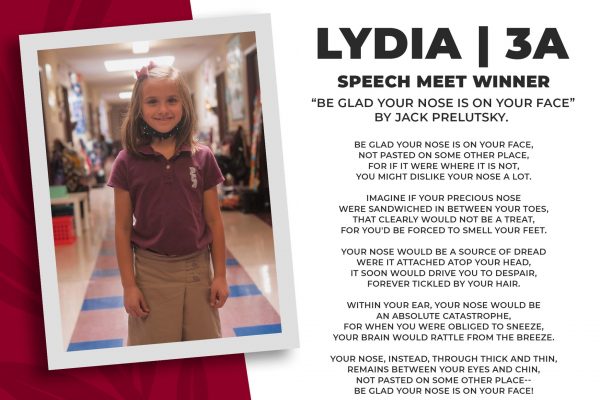
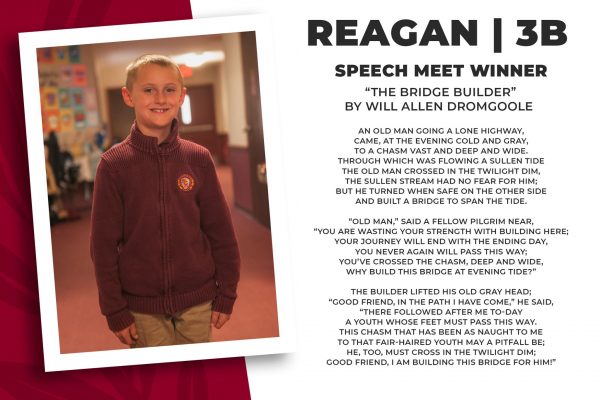


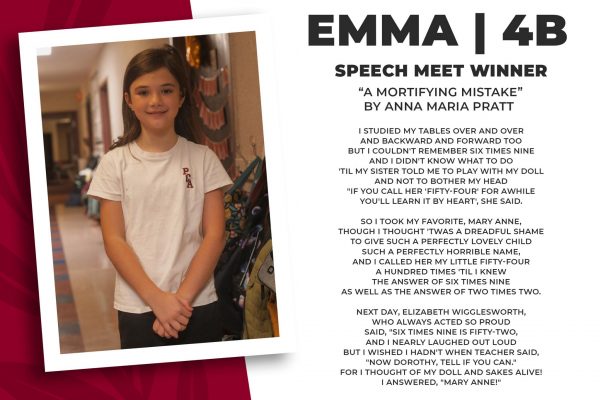

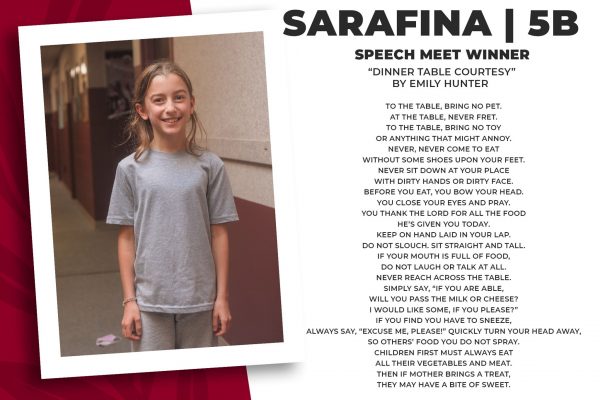
Students have a rubric to guide them, and it is our desire that with practice, we see them progress from the nervous “I can’t do this!” to confidence of, “I have got this; I’ve done this before!”
There are many suggestions for those who face stage anxiety; I have chosen 5 that I believe are most helpful:
- Take the right perspective: don’t focus on the fear of public speaking – you speak aloud all the time, in almost every aspect of life. This is only 2 minutes; you can get through 2 minutes!
- Over practice: use different pacing; ask people to interrupt you so that you know how to pick up if you lose your place, even speak in various voices that make you laugh.
- Give your speech to everyone – grandparents, dogs, mirrors, yourself in video; become your own critic.
- Lightly exercise (i.e. take a short walk) before speaking. It helps remove the jitters, channeling remaining nerves to energize your presentation.
- Eliminate the Fear of Rejection: focus on your material, not the audience; they are nervous too.
Our emphasis is ultimately on “How can I use language to minister to others?”, and by giving ample opportunities for our students to overcome the fear of public speaking, they will inevitably have more opportunities to create purposeful relationships with their future peers and have greater success in whatever path they follow.

